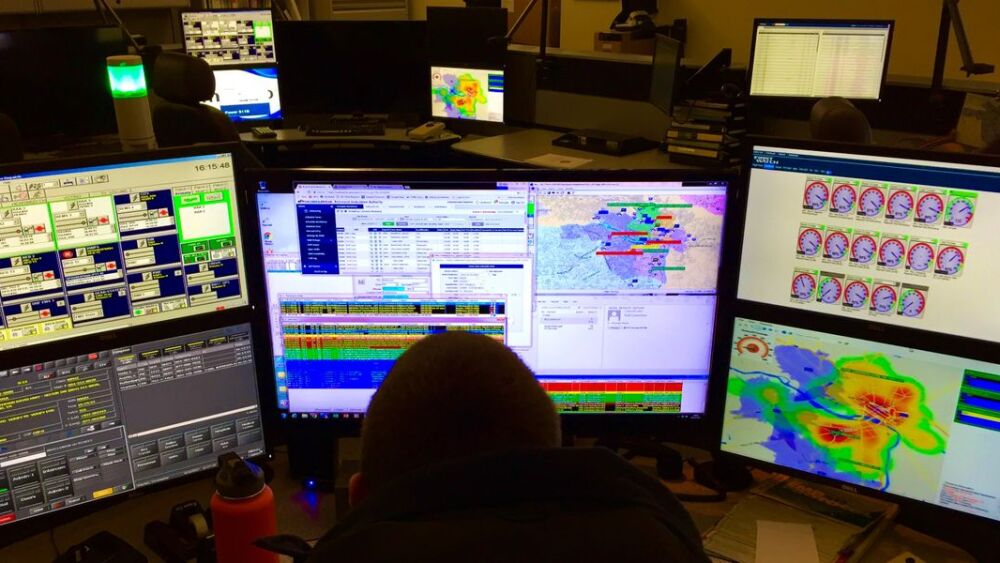National Public Safety Telecommunicators Week (NPSTW), the second week of April, is a chance to honor all our wonderful telecommunications personnel in the public safety community. Having been an EMS leader on both sides of the Atlantic, I have had the privilege of watching these cool professionals deliver their essential lifesaving service for two decades, and I am constantly in awe of them.
If you want to understand the value that our heroes in headsets bring, attend a cardiac arrest survivor event. I have presided over many such gatherings and the one thing that strikes me every time is the lasting effect the voice on the end of the telephone has on the survivor and their family. You would think that the biggest bond at these events is created between the crew and their survivor – but you would be wrong.
The bystander that called 911 or 999 will always seek out the person they were speaking to in those few minutes when the bystander’s world consisted solely of a body and a voice in their ear offering calm but firm instructions on what to do next. That voice provided the strength and direction that instructed and counted along as life was preserved for the arriving medics. When the crew ultimately gets to the scene, the emergency is already 5-8 minutes old and two people have been the strongest links in the chain of survival and have enabled life to continue. Sometimes, this essential aspect is overlooked, and there may well be no celebration of life at all if the call taker/dispatcher/controller didn’t do their job effectively.
NPSTW was initially set up in 1981 by the Contra Costa County Sheriff’s Office in California and is a time to celebrate and thank those who dedicate their lives to serving the public. It is a week that should be set aside so everyone can be made aware of their hard work and dedication. Hopefully, our dispatchers are getting the recognition they deserve this week from proclamations at city halls to a hearty “thank you” from all those who surround them and depend on their service. We must also take a moment to reflect that our call takers have also been impacted by COVID-19, and sadly, some of the names of those who have perished in the pandemic have been from our communication centers.
Classifying telecommunicators as first responders
As we celebrate this week, we should look to the future. As I have described, these amazing individuals are indeed our first, first responders but in many places, and from a legislative perspective, they are classified as mere office workers. That’s right, the U.S. Bureau of Labor Statistics Standard Occupation Classification System (SOCS) categorizes public safety telecommunicators as “Office and Administrative Support Occupations.”
In many states, public safety communicators have now been reclassified as first responders. California Assembly Bill 1945 was signed into law in 2020. Assembly Member Rudy Salas noted that, “For years, dispatchers have been misclassified under titles that do not reflect the importance of the life-saving work they perform every day. As wildfires ravage our state, the work of dispatchers coordinating our emergency response has never been more critical.”
On the federal level, several attempts have been made to do the same thing. Just this month, U.S. Reps. Norma Torres (D-CA), herself a former 911 professional, and Brian Fitzpatrick (R-PA), a former FBI supervisory special agent and federal prosecutor, as well as a considerable number of bi-partisan cosponsors, introduced House Resolution 2531 to the 117th Congress. The Bill – “To require the Director of the Office of Management and Budget to review and make certain revisions to the Standard Occupational Classification System, and for other purposes” will be known as the “Supporting Accurate Views of Emergency Services Act” (911 SAVES Act). 2531 will initially be heard by the House Education and Labor Committee before hopefully going on to the House and Senate as a whole.
In its recent press release, the National Emergency Number Association (NENA) noted that “This small but important change – which would cost the taxpayers nothing – would give an estimated 100,000 public safety telecommunicators located in every community across America the respect and support they deserve while improving the government’s data collection and analysis efforts.”
With that bill now introduced, it is a chance for everyone to contact their elected officials to sign on as a co-sponsor to show their support. But, this week, please take a moment to thank your communication center staff for their service, sacrifice and lifesaving efforts – they thoroughly deserve it.
Read more
The calm voice in the dark
The thin gold line represents those who aren’t ever seen, but are mostly heard; it stands for dispatchers
This article was originally posted Apr. 12, 2021. It has been updated.














